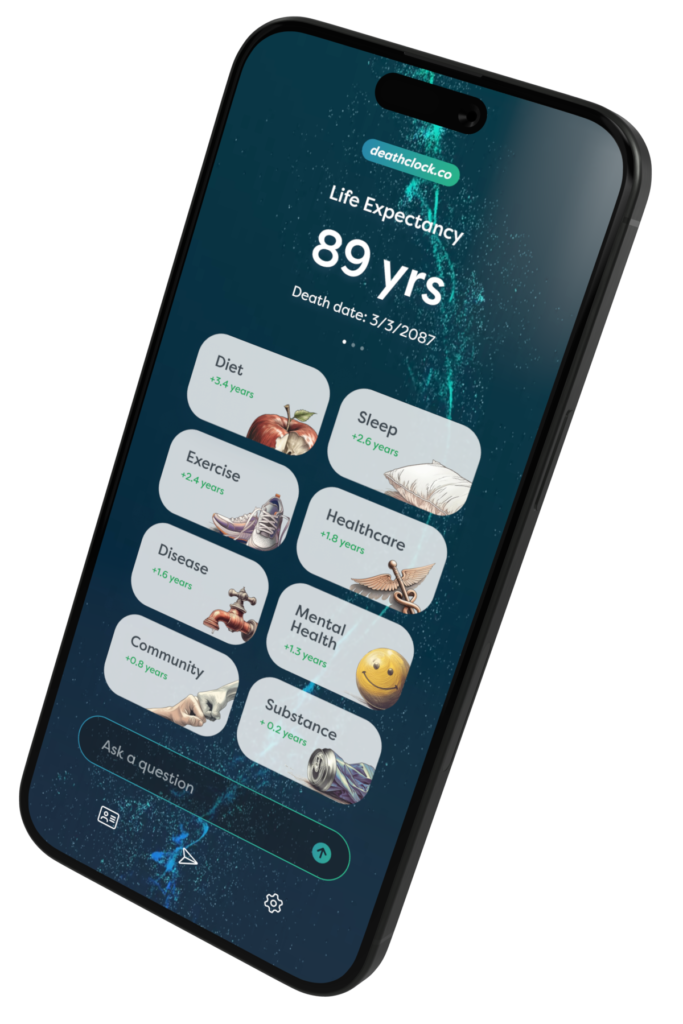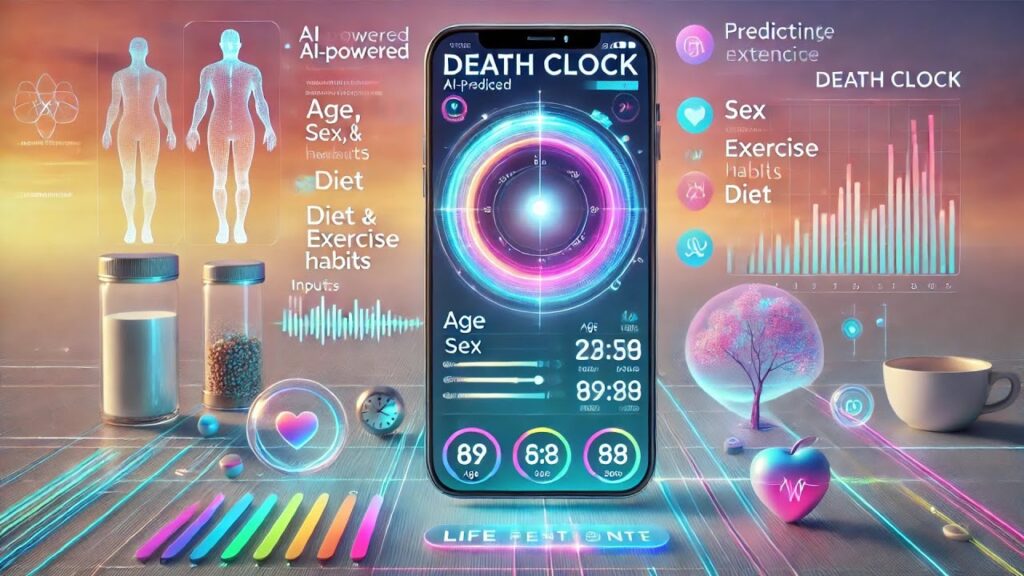“AI Is Promising a More Exact Prediction of the Day You’ll Die: How It Works and the Ethical Debate” Our advanced life expectancy calculator will accurately predict your death date for you depending on where you live, how much you smoke and your lifestyle.
The Technology Behind the ‘Death Clock’:
AI-driven algorithms analyze a variety of data, including genetic markers, medical history, lifestyle factors, and environmental conditions, to provide an estimate of an individual’s remaining lifespan.

Applications of AI Predictions:
Healthcare Planning: Helps individuals and medical professionals focus on preventative care and long-term health strategies.
Insurance Adjustments: May revolutionize the life insurance industry by offering personalized risk assessments.
Personal Decision-Making: Encourages users to prioritize what matters most in their lives.
Accuracy Claims and Limitations:
Proponents highlight the precision of modern AI models, but critics argue that such predictions are inherently uncertain due to unpredictable events, such as accidents or emerging diseases.
Ethical Considerations:
- Psychological Impact: Questions arise about how individuals may react to knowing their predicted lifespan.
- Privacy Concerns: Handling sensitive personal data securely is critical.
- Potential Misuse: Could lead to discrimination in insurance or employment based on lifespan predictions.
Public Response:
The app has sparked mixed reactions, from curiosity and fascination to concerns about its accuracy and moral implications.
The ‘Death Clock’ app uses AI to access data from about 53 million participants across 1,200 life expectancy studies. By analysing factors such as exercise, diet, sleep and stress levels, the app aims to deliver more precise predictions. These can show timings as in countdown left.

An AI-powered ‘Death Clock’ can ‘predict’ when you die. (Representational) A new Artificial Intelligence-powered app is making waves—by predicting the day you will die. Dubbed the Death Clock, the app uses AI to forecast an individual’s lifespan down to the second, leaving users equal parts intrigued and unsettled.
Available on both Google Play and the Apple Store, the Death Clock app uses data from 1,200 international life expectancy studies covering 53 million participants.
AI ‘Death Clock’: Science or Speculation?
The idea of an AI-powered app predicting the day you’ll die sits at the intersection of cutting-edge science and speculative forecasting. Here’s a breakdown of how it works and the controversies surrounding its accuracy:
The Science: How AI Makes Predictions
AI models analyze vast datasets to estimate lifespan based on identifiable patterns. Key factors include:
Medical History & Genetic Data:
Algorithms use genomic information and records of chronic conditions, medication, or treatments to gauge susceptibility to diseases or age-related decline.
Lifestyle Factors:
Data on habits like smoking, diet, exercise, and alcohol consumption contribute significantly to the prediction model.
Environmental Inputs:
Information about air quality, socioeconomic status, and access to healthcare provides a broader context for estimating longevity.
Machine Learning Techniques:
Advanced AI techniques, such as neural networks, analyze correlations and predict outcomes based on patterns observed in large datasets of similar individuals.

The Speculation: Where Uncertainty Creeps In
While the underlying science is sound, several factors challenge the accuracy of these predictions:
Unpredictable Events:
AI cannot account for random events, such as accidents, natural disasters, or sudden illnesses.
Data Gaps and Biases:
The accuracy of predictions depends heavily on the quality and diversity of the input data. Biases in the dataset may lead to skewed predictions.
Complexity of Human Biology:
Despite.
